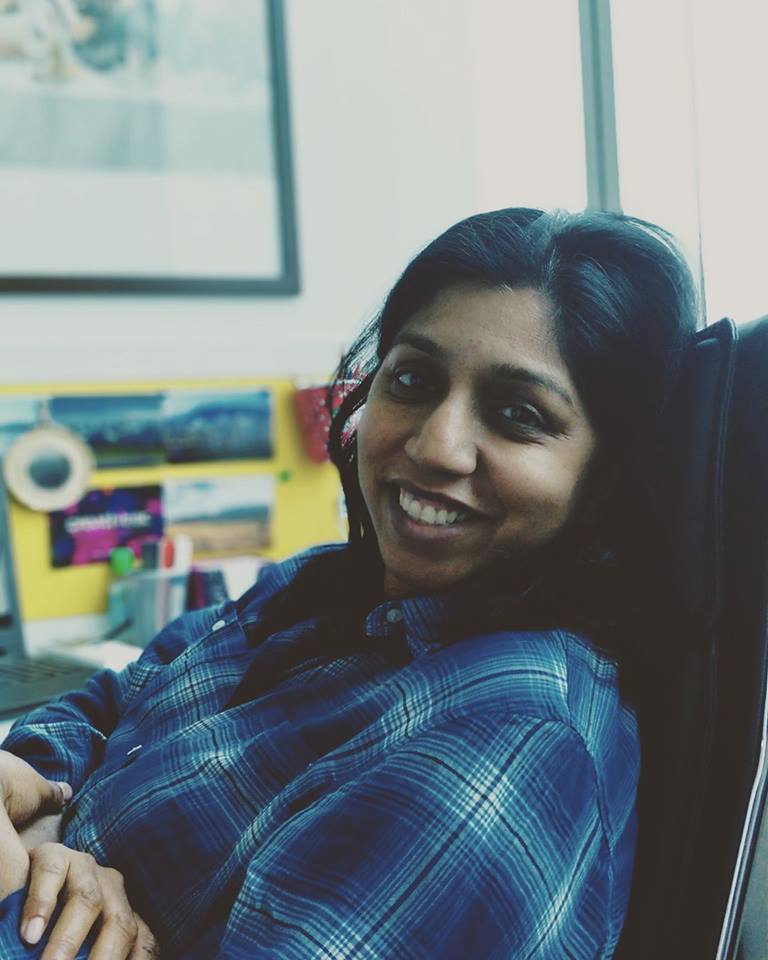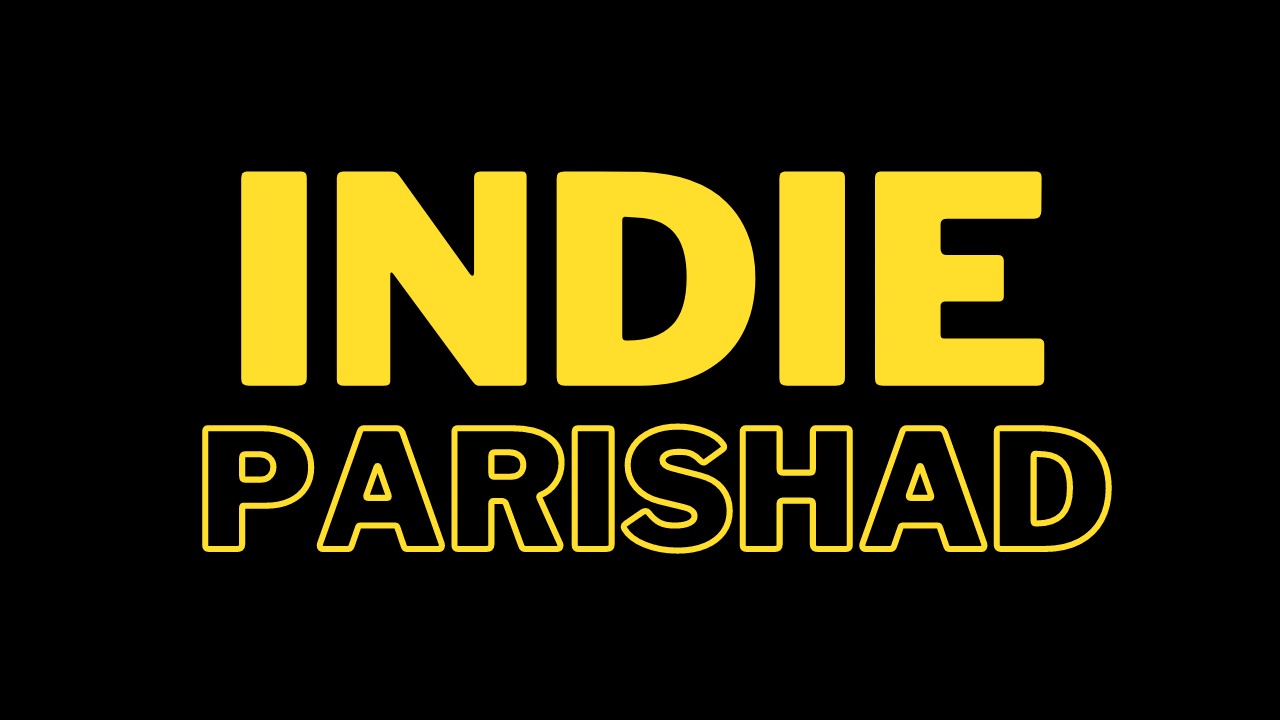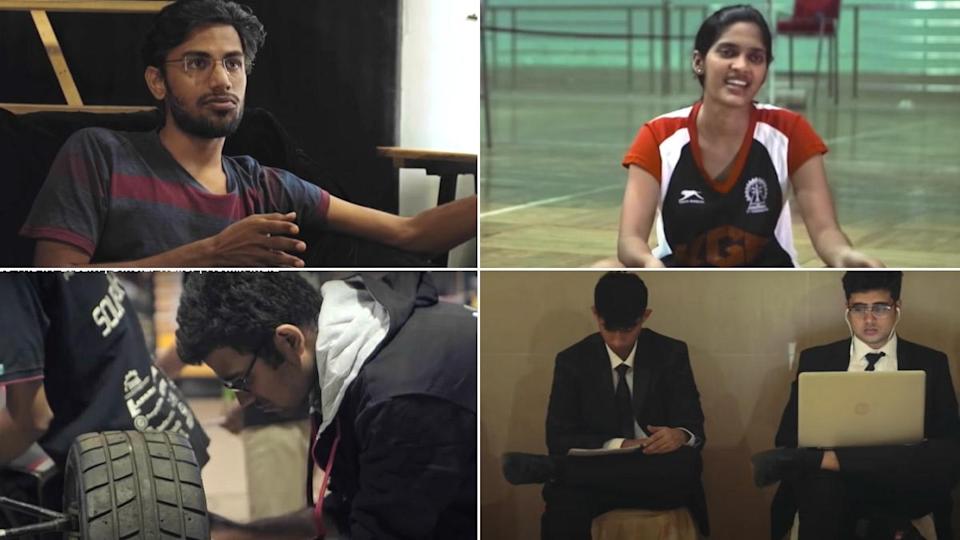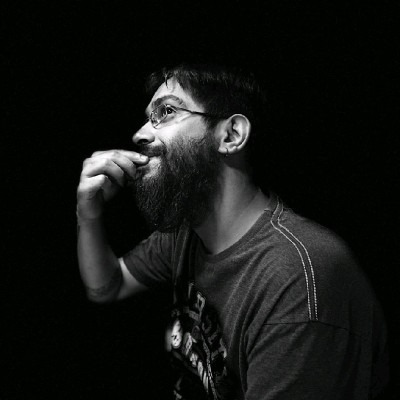By Priya Bhattacharji
Usually, when we’re scheduled to interview someone new, we hope for it to be quick, to the point and centred upon the person’s work in question. The last thing we expect — though we secretly always hope — is an unassuming conversation, or a peak into the modest personality behind the numbers and hype.
Last week, when I contacted filmmaker (all-rounder, actually) Jyoti Kapur Das, I realised that this particular kind of enlightenment can be a two-way street. Through our long-winding, curious chat, it ceased to be a formal interview at an early point. On the way, of course, she got candid about the making of her (Filmfare) award-winning short film, Chutney, her influences and her multiple roles.
‘A good story always clicks.’
The viral sensation, Chutney, with its 116.5 million views (and counting…), proves this cliché true.
Its director insists, “These numbers are thanks to the unlimited wifi, 4G offers!” But the short film’s resounding success on the web and widespread critical acclaim make her joke fall flat, miserably. “Okay. Super flattering, slightly embarrassing to be the focus of so much interest,” gushes Jyoti more honestly, as she receives a volley of questions and complements for the interview. To keep it un-awkward, Chutney’s gripping storyline becomes the focus of discussion. Much like its protagonist (played by Tisca Chopra), it appears seemingly plain only to eventually unravel itself as creepily twisted.
The well-crafted 16-minute-long “Large Short” was made in a span of two months, and shot in and around Delhi over five days. Maximisation of time appears to be Kapur’s principle of life as she glides through her multiple roles of writer, director, creative producer at a leading studio and a mother of two kids. Jyoti calls it the “The Goddess-Syndrome at play. To juggle a lot things at one time – it’s congratulatory, self-fulfilling and demands self-care”.
An alumnus of the coveted FTII editing course, Jyoti then offers up valuable filmmaking advice: Write the film like you’ll cut it. Filmmaking is an expensive art form where you have to make the most of your resources, including time.
Time is again the keyword here. Amidst her hectic corporate schedule, it’s through the practice of “power-writing” that she hones her storytelling skills. “It is something like power napping. Take out 20-30 mins to write everyday. I have a writing software installed on all my gadgets. If you like something, jolly well find the time for it.”
The finely etched ‘Middle India’ in Chutney is unmissable: the ritualised domesticity, the acute status-anxiety, the fragility of appearances, the spicy-gossip culture. For someone belonging to to the cosmopolitan environs of Bombay, Jyoti surprisingly doesn’t appear far removed from the “Other India” and has her privilege in check. “I am aware of my advantage – a person from Bombay working in the film industry. In the beginning there was perhaps a lack of struggle, as I’m familiar with its various codes that an outsider might take time to decipher. But it was at FTII that I was exposed to a broader cross-section of society. It was a heterogeneous mix with students from all over the country, from diverse backgrounds”.
Her keen interest in the multitudinous human condition is hard to ignore. “Observing how people live, think, appear and behave has always fascinated me since childhood. While travelling by train, I like to peep into people’s houses to see how they live. While watching matches, I wait for the camera to pan to the fans”.
It was this common fascination for the intricacies of ordinary lives that brought actress Tisca Chopra and Jyoti to co-write ‘Chutney’. “Tisca and I both brainstormed on the screenplay with our shared observations. While writing, I worked on the back story and future story of all my characters. The short is a literally a slice of their lives. It’s a phase in between. For that, I had their birthplace, education, sexual histories, cause of death – all possible details were in place while directing”.
You can’t help prod about the ‘Delhi-ness’ of her characters with its Ghaziabad jibes and whispery undertones. Jyoti chuckles, “As a kid, I spent summer vacations in Delhi and was exposed to the city. I keep meeting a lot of Delhi people even now, young and old. This city is full of them. I can’t define it but there is a certain “Delhi” behaviour – you know, wink wink nudge nudge”. It’s hard to deny this, given that mainstream Bollywood has long been obsessed with the tonal idea of urban North Indianness through a spate of unabashed Delhi-based comedies.
Apart from its ending, Tisca’s “nosy” true-to-role look was the other startling feature. “It was prosthetics and Tisca’s ace make-up skills. However, we did learn a valuable lesson: Not to do make-up and rehearsals in AC rooms when you intend to shoot in the sweltering heat of Delhi-6. Common sense, in hindsight. With her lived-in accent and dialogues, Avneesh Mishra did a fantastic job. We did a few workshops with Rasika (Dugal) and Tisca to build the conversational ease brought alive in the film.”
While critics drew similarities with a Roald Dahl story, Jyoti lets us in on a secret. “Chutney was supposed to be based on a Hindi story I had come across, but we changed it so drastically that you can’t call it an adaptation. In fact, the writers of the story attended the screening and are even mentioned in the credits”.
Jyoti describes the online reception to Chutney as “mental”. “Magical” is how she recalls the world premier at the Dharamshala Film Festival. “When you showcase your work, you have this mental barometer with check-points for audience reactions. The audience at the DIFF premier reacted to the film just the way I wanted them to”.
When quizzed about future projects, she doesn’t hesitate one bit. “Definitely not a short immediately. It’s difficult to follow up after what Chutney created. I have been approached by a known screenwriter to direct a women-oriented feature”. Somewhere in the conversation, she happens to mention her first short, Lucky Day, made in 2002 staring Raghubir Yadav – an interesting 10-minute film that weaves middle-class aspirations into the storyline seamlessly.
“It struck me one day I have someone sitting at home to shoot a film – my cinematographer husband. Raghubir Yadav used to stay in the same building. That’s how I went about making my first short. It got screened at various film festivals. In fact, it received generous praise from Anurag Kashyap, too.
While Jyoti returns to her day job to produce an upcoming web-series with the in-demand Rajkummar Rao, one wonders how her independent director/studio producer roles influence the other. Instead of a quasi-modest reflection, she simply recounts her career-trajectory that has taken its own course and time. “Chutney was my second short for which I was completely the director – Tisca was the producer in charge. Early in my career, I assisted many famous directors. Once I become a mom, I turned creative producer for ads and PSAs, carrying my kids to meetings. I joined a corporate at the age of 40. As a trained technician, I have seen the process bottom-up. As a producer, it makes you sensitive and sensible towards the creative process. I’ve been both sides of the fence, and that’s an advantage these days. I’m fortunate to sit in a studio and help bridge the historical gap between artist and producer. How many can say that?”
In an age of burgeoning media options with a huge demand for engaging, relatable stories of varied forms, Jyoti signs off with valuable producing advice. “If you demand a professional level of storytelling, you need to offer a compensation worthy and respectful of professionals.”
Truer words have never been said.









Leave A Comment
You must be logged in to post a comment.